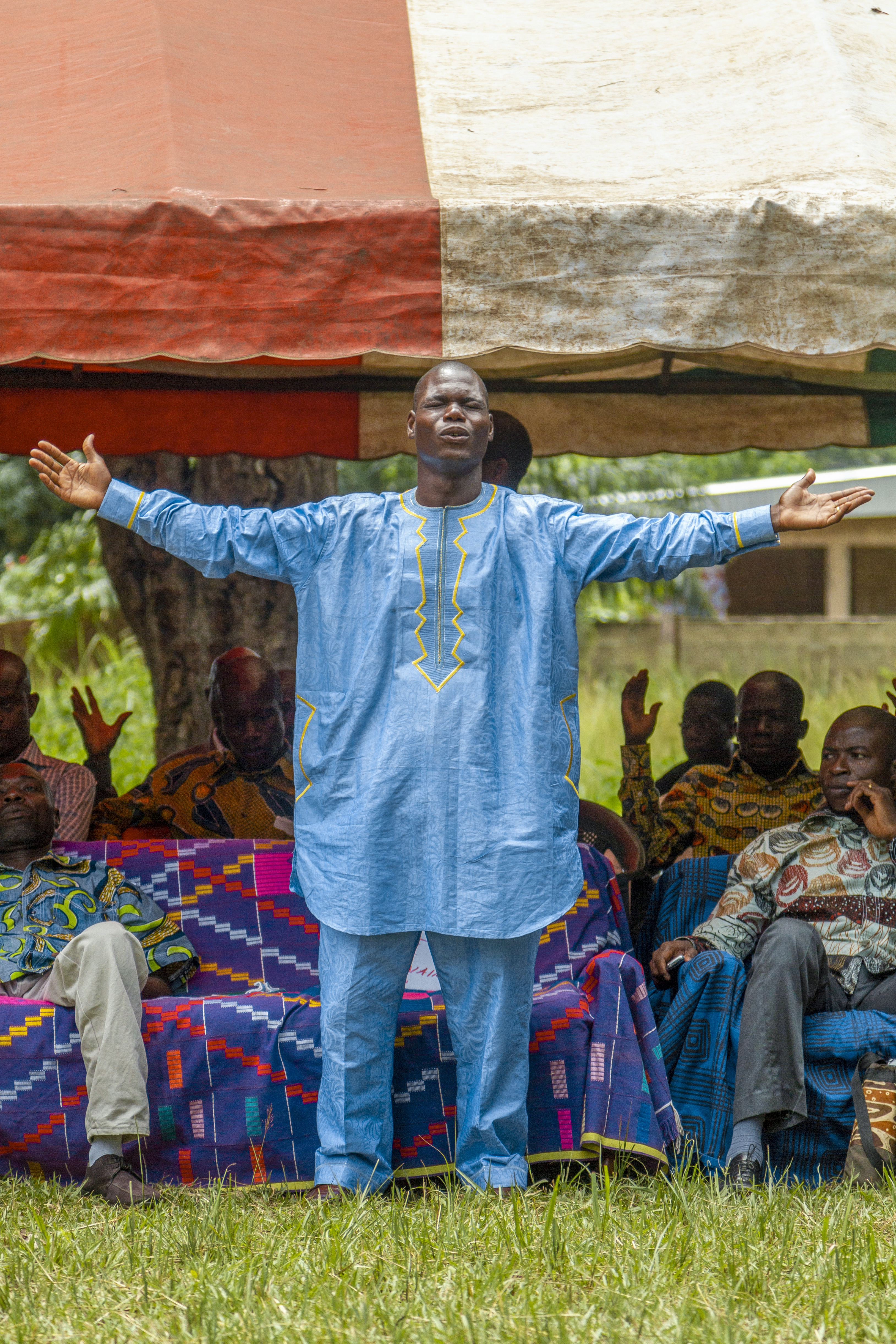
5 minute read
Facing Forward: Prayer
While pondering the church’s core value of prayer, my thoughts went to a song that was written by Cleavant Derricks, pastor of a small African American church during the Great Depression of the 1930s:
Now let us have a little talk with Jesus,
Let us tell him all about our troubles,
He will hear our faintest cry,
And he will answer by and by,
Now when you feel a little prayer wheel turning,
And you know a little fire is burning,
You will find a little talk with Jesus makes it right.
When you have a little talk with Jesus, where does your emphasis lie? Is it on what you are praying or to whom you are praying? So often the what seems to demand attention. The needs, whether for healing, provision, deliverance, etc., carry such a sense of urgency.
What if we could step back from the what and give thought to the whom? In the first line of the lyrics—before the what, before venting our troubles and voicing our faintest cry—the songwriter draws us to the whom: Now let us have a little talk with Jesus. God said, “Call to Me and I will answer you, and show you great and mighty things, which you do not know” (Jeremiah 33:3 NKJV, emphasis mine). The psalmist echoed these words, saying, “Call upon Me in the day of trouble; I will deliver you, and you shall glorify Me” (Psalm 50:15, emphasis mine). Jesus himself placed the whom before the what in the model prayer, saying, “Our Father which art in heaven, . . .” (Matthew 6:9 KJV).
How do you see the Father? In his book, Prayer, the Great Adventure, David Jeremiah notes that when the scribes who copied the Old Testament Scriptures wrote the word for God, Yahweh, they would throw away their pen, never to use it again. They reasoned that once it had written the name for God, the pen was disqualified to write anything else. The men and women of the Old Testament had a great sense of reverence and fear for God; however, there was a lack of personal intimacy with him. In the entire Old Testament, the word “father” is used to describe God only fourteen times, and in every instance, it refers to him as the Father of the Israelite nation. The relationship was national, never personal.
The New Testament marked a significant shift in relationship. The word “Father” occurs seventeen times in the Sermon on the Mount alone. In the four Gospels, Jesus spoke of the Father more than seventy times. No longer was it just a national relationship; it was personal.
Paul explained this relational shift, saying, “But when the fulness of the time had come, God sent forth His Son, born of a woman, born under the law, to redeem those who were under the law, that we might receive the adoption as sons. And because you are sons, God has sent forth the Spirit of His Son into your hearts, crying out, ‘Abba, Father!’ Therefore you are no longer a slave but a son, and if a son, then an heir of God through Christ” (Galatians 4:4–7). We are the children of God. He is our Father.
When John F Kennedy was president of the United States, Life Magazine published photos of his children playing with their toys on the floor of the Oval Office. Kennedy was the president, but he was also a father. He held the most powerful office in the world, but playing at his feet were two kids who called him Daddy. It is doubtful that your kids or mine have been given this opportunity. But his kids were. Why? Because he was their father.
As we enter this new year with 21 Days of Prayer, don’t overlook this intimate relationship we have with God. It is true that he is the King of kings and Lord of lords, but through his Son, we can have a personal, deep, intimate conversation with our Father.
Brennon Manning tells the story of a minister who received a phone call one day from someone he had never met, asking if he would go to the hospital to visit a dying man. He went and found the man lying in his bed with a chair pulled up next to him. “I’m going to die,” he said. “I know that, but before I do, I’ve got to ask you a question. Some years ago, I was struggling with my prayer life, and someone told me that it would help me a lot if I could remember that prayer is a conversation, an intimate conversation, with God. They suggested I set a chair out where I pray and imagine that I was having a conversation with the Lord Jesus, and the Lord Jesus was in that chair. I’ve been doing that. Sometimes I pray for over an hour, remembering that Jesus is there. Is that alright?”
The minister told him, “It’s not only alright, but I think it delights the heart of God that your prayer is an intimate conversation with him.”
A few days later the minister got a call from the daughter of the man, saying her father had died, and they had found his body in a strange position. “When we walked into his hospital room, his head was leaning on a chair by his bed.”
That man had come to understand that the essence of prayer was more than the what. His heart was drawn to the whom. During these 21 Days of Prayer, rest in the Father and lean into him. Just a little talk with Jesus makes it right.











